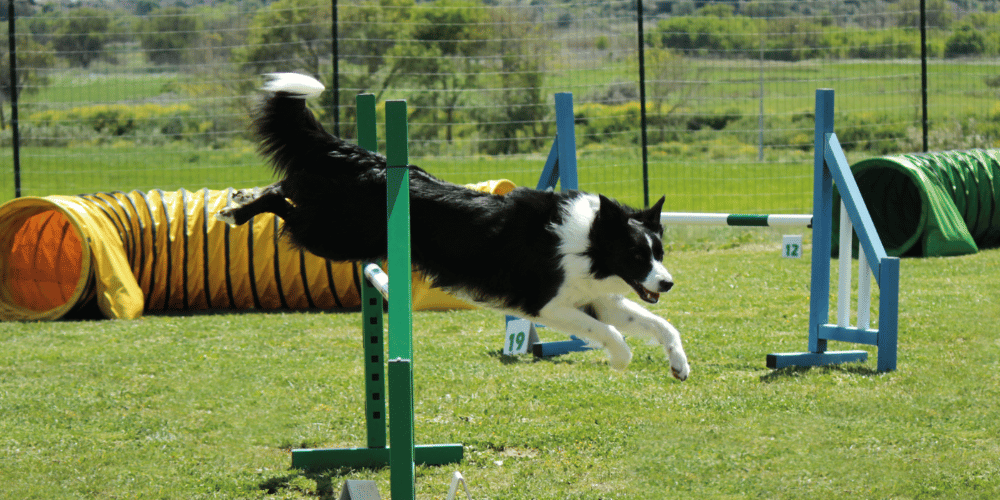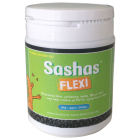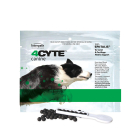
When it comes to our beloved four-legged family members, it's safe to say that we want nothing but the best for them. Keeping them safe, healthy, and happy is our number one priority. In this blog post, we'll take a closer look at a common issue that may dampen your dog's joyful spirit - arthritis.
Just like in humans, arthritis in dogs is an uncomfortable condition that affects the joints. It can lead to pain, reduced mobility, and overall diminished quality of life. But don't fret! We're here to help guide you through recognizing the symptoms, implementing preventive measures, and exploring effective treatment options. By the end, your pooch might just be doing cartwheels (or at least their doggy equivalent)!
Recognizing the Symptoms: Is Your Pooch in Pain?
Spotting the signs of arthritis in dogs can sometimes be a game of hide and seek. Dogs are quite adept at hiding their pain, an instinctual trait passed down from their wild ancestors. Here's what to watch for:
- Limping or difficulty moving: Is your dog showing signs of stiffness, especially after resting or in the morning? They might even start to avoid activities they once loved, like fetching or going on walks.
- Behavioral changes: Is your normally playful pup suddenly acting withdrawn or irritable? Dogs may exhibit these behavioral changes when dealing with chronic discomfort.
- Weight gain or loss of appetite: Inactivity due to pain could lead to weight gain, while loss of appetite can also occur in some dogs suffering from arthritis.
If you notice these signs, it's important to schedule a visit with your vet. Remember, early detection is key to managing and treating arthritis effectively.
Are Certain Types of Dogs More Prone to Arthritis?
It's a question that many dog owners may find themselves asking: "Is my pooch more susceptible to arthritis than other breeds?" In truth, arthritis can affect any dog, regardless of breed, size, or age. However, certain factors might put some types at a higher risk.
First, large breed dogs such as Labrador Retrievers, Golden Retrievers, and German Shepherds often tend to be more prone to arthritis. Their larger size and weight can put more strain on their joints, especially if they are overweight. These breeds may also be genetically predisposed to certain joint conditions that can lead to arthritis, such as hip or elbow dysplasia.
Second, older dogs are more likely to develop arthritis simply due to the wear and tear on their joints over time. This is not breed-specific and can affect any dog as they age.
Lastly, dogs that have experienced joint injuries are more likely to develop arthritis in the affected joint. This can occur in any breed, and can be the result of trauma or excessive strenuous activity.
It's important to note that while some dogs might be more susceptible, every dog has the potential to develop arthritis. Regular vet check-ups and maintaining a healthy lifestyle can go a long way in delaying the onset of arthritis and managing its symptoms.


Treatment: Helping Your Pup Bounce Back
So, your furry friend has been diagnosed with arthritis. What's next? The good news is there's an array of treatment options available. Besides pain management medications and physiotherapy, there are several products available at Canadavet.com that can provide additional support.
- 4CYTE Canine: This revolutionary joint support supplement is designed to promote joint health and function, helping your pup rediscover their agility and zest for life.
- PAW Osteocare Dog Joint Protect Chews: Packed with glucosamine and chondroitin, these tasty chews help improve joint function and reduce symptoms of arthritis.
- Sasha's Flexibites: These delectable treats are not just a way to pamper your pooch, but also serve as an excellent source of omega-3 fatty acids, glucosamine, and chondroitin to support joint health.
- Vetalogica Vitarapid Dog Joint/Arthritis Daily Treats: These fast-acting treats contain unique ingredients like Glucosamend joint care technology, which help maintain optimal bone and joint health.
Conclusion: Turning the Ruff Times into Woofs of Joy
Arthritis in dogs can be a challenging condition, but with early detection, preventive measures, and effective treatment options, your canine companion can continue to live a happy and fulfilling life. Armed with this knowledge and the right products, you're now ready to give arthritis a run for its money - or perhaps a good, solid bark!
So, remember to keep a keen eye on your pup's behavior, maintain a healthy and active lifestyle for them, and don't hesitate to reach out to your vet if you notice any changes. Let's continue to keep our furry friends wagging their tails with joy, because a happy dog is the best dog!



